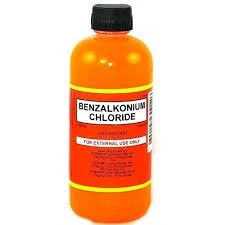Poly Aluminium Chloride Applications and Benefits in Water Treatment Processes
Poly Aluminium Chloride for Water Treatment
Water is an essential resource for life, and its quality is paramount for public health and environmental sustainability. Among various water treatment chemicals, Poly Aluminium Chloride (PAC) has emerged as a preferred choice for municipal and industrial water treatment processes. This article explores the importance of PAC, its composition, mechanisms, advantages, and applications in water treatment.
What is Poly Aluminium Chloride?
Poly Aluminium Chloride is a water-soluble inorganic polymer that serves as an effective coagulant and flocculant. It is produced by the hydrolysis of aluminum chloride in the presence of alkalis. PAC typically exists as a white or yellowish powder or as a liquid solution. The formulation includes varying degrees of aluminum content, which play a crucial role in its coagulation properties. The polymeric nature of PAC allows it to stabilize flocs by bridging them together, enhancing the removal of impurities from water.
Mechanism of Action
The water treatment process using PAC involves several steps. Initially, when PAC is added to the water, it dissociates into aluminum ions and polycations. The aluminum ions neutralize the negative charges of suspended particles, such as silt, clay, and organic matter, facilitating their agglomeration. As these particles combine, they form larger flocs that can be easily removed from the water through sedimentation or filtration.
The key to PAC's effectiveness lies in its molecular weight and charge density. PAC has a higher charge density compared to traditional coagulants like aluminum sulfate, enabling it to interact more effectively with a broader range of contaminants. This characteristic also contributes to its ability to function at lower dosages, which can result in cost savings and reduced sludge generation.
Advantages of Using PAC
1. Enhanced Coagulation PAC is known for its superior coagulation performance, even in challenging conditions such as high turbidity or varying pH levels. Its ability to function effectively across a wide range of temperatures and water source qualities makes it versatile for different applications.
poly aluminium chloride for water treatment

2. Lower Dosage Requirement Due to its high efficiency, lower dosages of PAC are needed compared to traditional coagulants. This not only reduces chemical costs but also minimizes the volume of sludge generated, leading to easier disposal.
3. Minimal Residuals PAC results in fewer residual aluminum ions in treated water, meeting safety standards and decreasing the risk of harmful effects on aquatic life and human health.
4. Wide Application Range PAC is suitable for treating various types of water, including drinking water, wastewater, and industrial effluents. Its effectiveness extends to the removal of color, odor, and organic contaminants, making it a valuable asset in environmental management.
Applications of PAC in Water Treatment
The applications of Poly Aluminium Chloride span across various sectors. In municipal water treatment plants, it is commonly used to purify drinking water by removing turbidity, pathogens, and other contaminants. As industries aim to meet regulatory standards for effluent discharge, PAC is employed to treat wastewater, ensuring harmful substances are adequately removed before being released into the environment.
In addition to municipal and industrial use, PAC finds application in paper manufacturing, mineral processing, and even in the food industry for purifying water used in food production. Its adaptability and effectiveness in a variety of settings highlight its significance in modern water treatment technologies.
Conclusion
Poly Aluminium Chloride is a crucial chemical in the realm of water treatment, offering numerous benefits over traditional coagulants. Its effectiveness, lower dosage requirements, and versatility make it an indispensable tool for achieving clean, safe water. As the demand for water quality continues to rise, the role of PAC in water management will only become more prominent, helping to ensure a sustainable future for water resources.
-
Water Treatment with Flocculant Water TreatmentNewsJun.12,2025
-
Polymaleic AnhydrideNewsJun.12,2025
-
Polyaspartic AcidNewsJun.12,2025
-
Enhance Industrial Processes with IsothiazolinonesNewsJun.12,2025
-
Enhance Industrial Processes with PBTCA SolutionsNewsJun.12,2025
-
Dodecyldimethylbenzylammonium Chloride SolutionsNewsJun.12,2025





